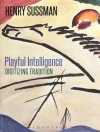Cynicism is usually seen as a provocative mode of dissent from conventional moral thought, casting doubt on the motives that guide right conduct. When critics today complain that it is ubiquitous but lacks the serious bite of classical Cynicism, they express concern that it can now only be corrosively negative. The Function of Cynicism at the Present Time takes a more balanced view. Re-evaluating the role of cynicism in literature, cultural criticism, and philosophy from 1840 to the present, it treats cynic confrontationalism as a widely-employed credibility-check on the promotion of moral ideals–with roots in human psychology. Helen Small investigates how writers have engaged with Cynic traditions of thought, and later more gestural styles of cynicism, to re-calibrate dominant moral values, judgements of taste, and political agreements. The argument develops through a series of cynic challenges to accepted moral thinking: Friedrich Nietzsche on morality; Thomas Carlyle v. J. S. Mill on the permissible limits of moral provocation; Arnold on the freedom of criticism; George Eliot and Ford Madox Ford on cosmopolitanism; Bertrand Russell, John Dewey, and Laura Kipnis on the conditions of work in the university. The Function of Cynicism treats topics of present-day public concern: abrasive styles of public argument; debasing challenges to conventional morality; free speech, moral controversialism; the authority of reason and the limits of that authority; nationalism and resistance to nationalism; and liberty of expression as a core principle of the university.
Helen Small
Function of Cynicism at the Present Time [PDF ebook]
Function of Cynicism at the Present Time [PDF ebook]
购买此电子书可免费获赠一本!
语言 英语 ● 格式 PDF ● 网页 248 ● ISBN 9780192606518 ● 出版者 OUP Oxford ● 发布时间 2020 ● 下载 3 时 ● 货币 EUR ● ID 8041449 ● 复制保护 Adobe DRM
需要具备DRM功能的电子书阅读器












